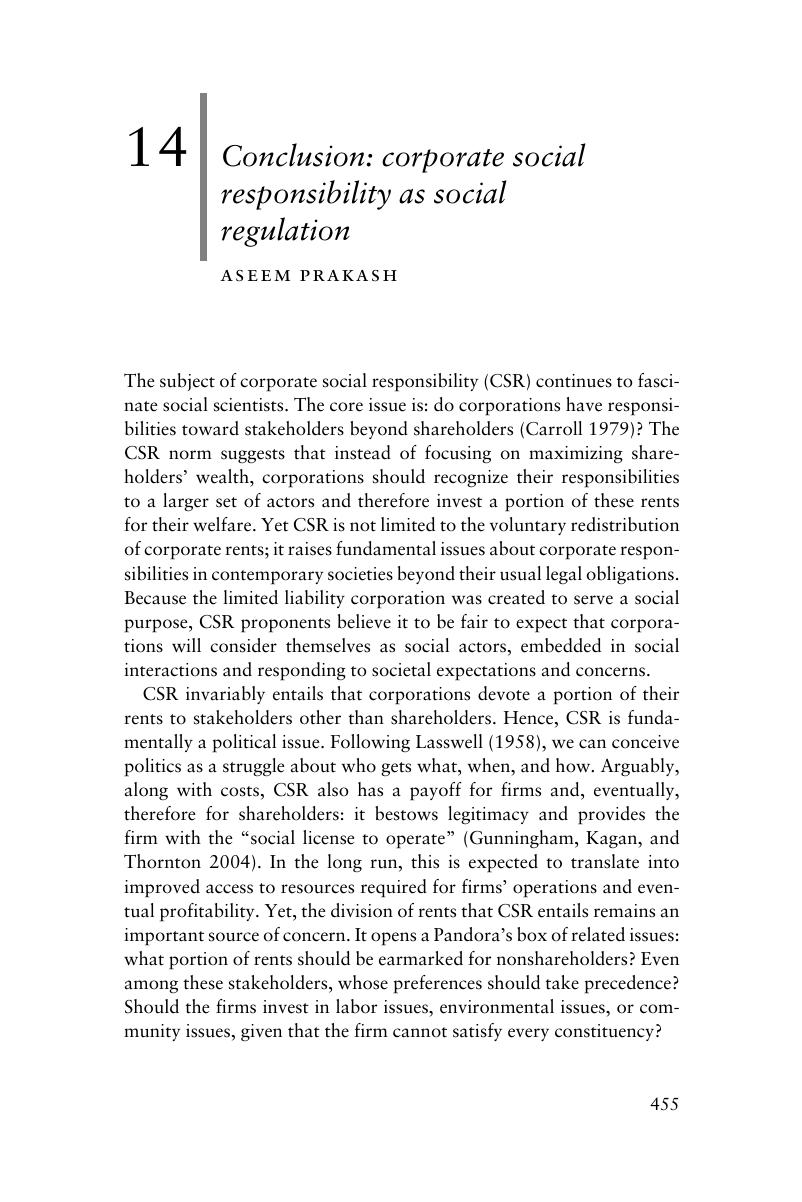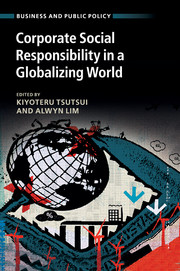Book contents
- Corporate Social Responsibility in a Globalizing World
- Business and Public Policy
- Corporate Social Responsibility in a Globalizing World
- Copyright page
- Dedication
- Contents
- Figures
- Tables
- Notes on contributors
- Book part
- 1 The social regulation of the economy in the global context
- Part I Legitimation and contestation in global corporate responsibility
- Part II Social construction and field formation in global corporate social responsibility
- Part III Corporations’ reaction to global corporate social responsibility pressures
- Part IV The impact of global corporate social responsibility pressures on corporate social responsibility outcomes
- 11 Is greenness in the eye of the beholder? Corporate social responsibility frameworks and the environmental performance of US firms
- 12 The mobility of industries and the limits of corporate social responsibility: labor codes of conduct in Indonesian factories
- 13 Good firms, good targets: the relationship among corporate social responsibility, reputation, and activist targeting
- 14 Conclusion: corporate social responsibility as social regulation
- Index
- References
14 - Conclusion: corporate social responsibility as social regulation
from Part IV - The impact of global corporate social responsibility pressures on corporate social responsibility outcomes
Published online by Cambridge University Press: 05 May 2015
- Corporate Social Responsibility in a Globalizing World
- Business and Public Policy
- Corporate Social Responsibility in a Globalizing World
- Copyright page
- Dedication
- Contents
- Figures
- Tables
- Notes on contributors
- Book part
- 1 The social regulation of the economy in the global context
- Part I Legitimation and contestation in global corporate responsibility
- Part II Social construction and field formation in global corporate social responsibility
- Part III Corporations’ reaction to global corporate social responsibility pressures
- Part IV The impact of global corporate social responsibility pressures on corporate social responsibility outcomes
- 11 Is greenness in the eye of the beholder? Corporate social responsibility frameworks and the environmental performance of US firms
- 12 The mobility of industries and the limits of corporate social responsibility: labor codes of conduct in Indonesian factories
- 13 Good firms, good targets: the relationship among corporate social responsibility, reputation, and activist targeting
- 14 Conclusion: corporate social responsibility as social regulation
- Index
- References
Summary

- Type
- Chapter
- Information
- Corporate Social Responsibility in a Globalizing World , pp. 455 - 472Publisher: Cambridge University PressPrint publication year: 2015
References
- 1
- Cited by



